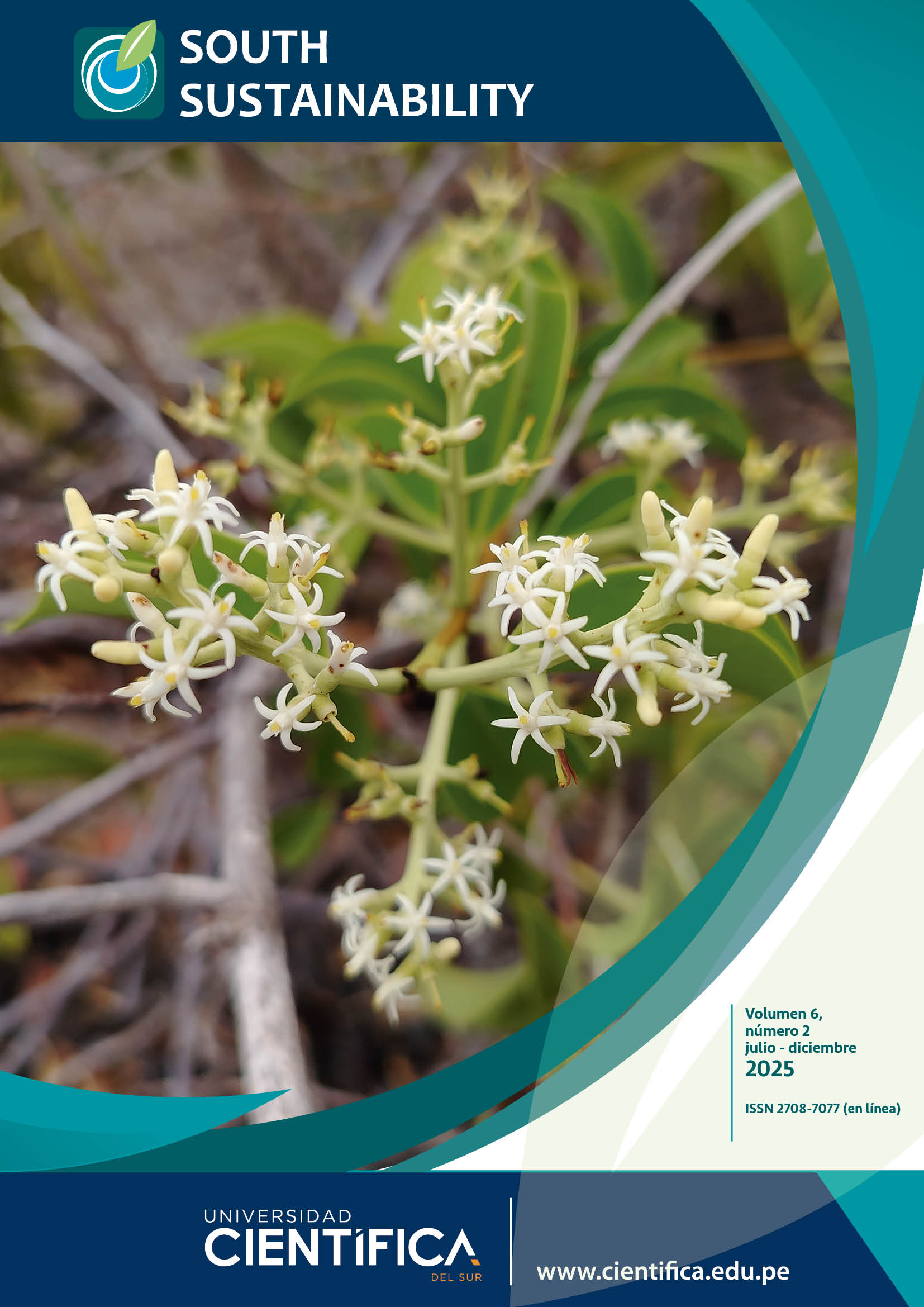Preliminary recovery of Chlorella vulgaris and Phaeodactylum tricornutum biomass through alkaline flocculation: an eco-efficient strategy for sustainable production systems
DOI:
https://doi.org/10.21142/SS-0602-2025-e130Palabras clave:
microalgas, hidróxido de socio, sostenible, cosecha, floculación, economía circularResumen
Population growth and the increasing demand for resources position microalgae as a sustainable alternative for biomass production, with applications in the food, energy and environmental sectors. However, due to the small cell size and low biomass concentration, harvesting can account for up to 30% of production costs. Among the strategies available, alkaline flocculation is notable for its simplicity, low cost and lower environmental impact. In this study, we evaluated the biomass recovery of Chlorella vulgaris and Phaeodactylum tricornutum through the addition of NaOH (0.5 M) under controlled conditions. Complete sedimentation was achieved within 30 minutes, with flocculation efficiencies of 80% and 92%, respectively. Gravimetric analyses confirmed significant yields, particularly for P. tricornutum. This research contributes to global sustainability by demonstrating a technique that reduces energy consumption, minimizes chemical use, and enables resource reuse, thereby supporting resilient and circular production systems. This contributes to the transition toward biotechnological models aligned with the circular economy and the Sustainable Development Goals, particularly those associated with responsible production (SDG 12) and climate action (SDG 13).
Descargas
Publicado
Número
Sección
Licencia
Derechos de autor 2025 Jorge Bautista Correa; Max Castañeda Franco , Arturo Mires-Reyes, Paul Baltazar Guerrero

Esta obra está bajo una licencia internacional Creative Commons Atribución 4.0.















